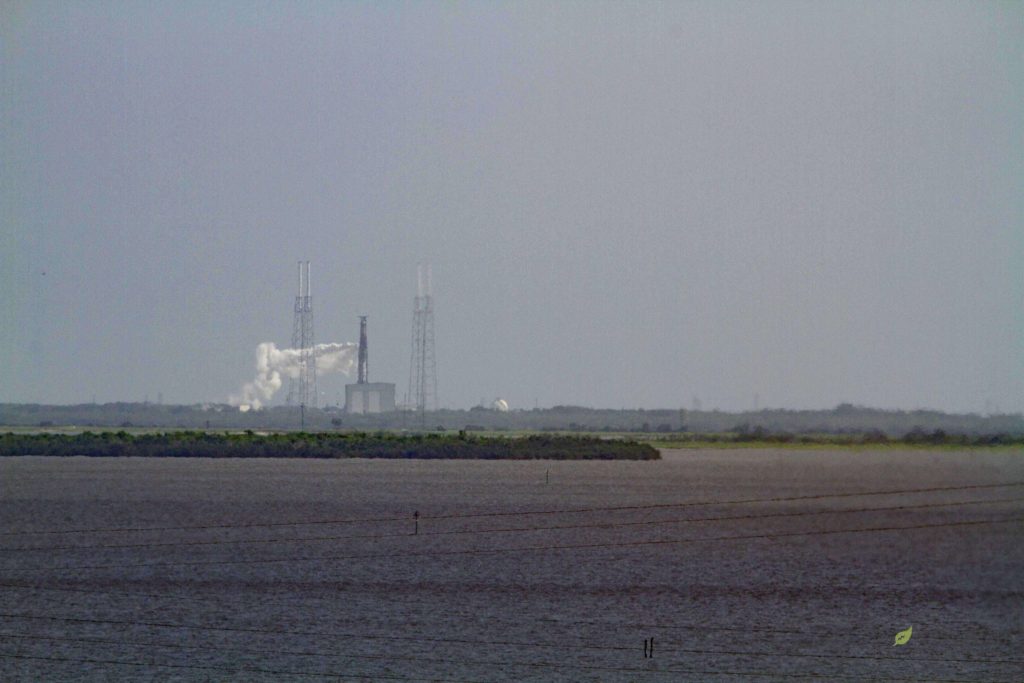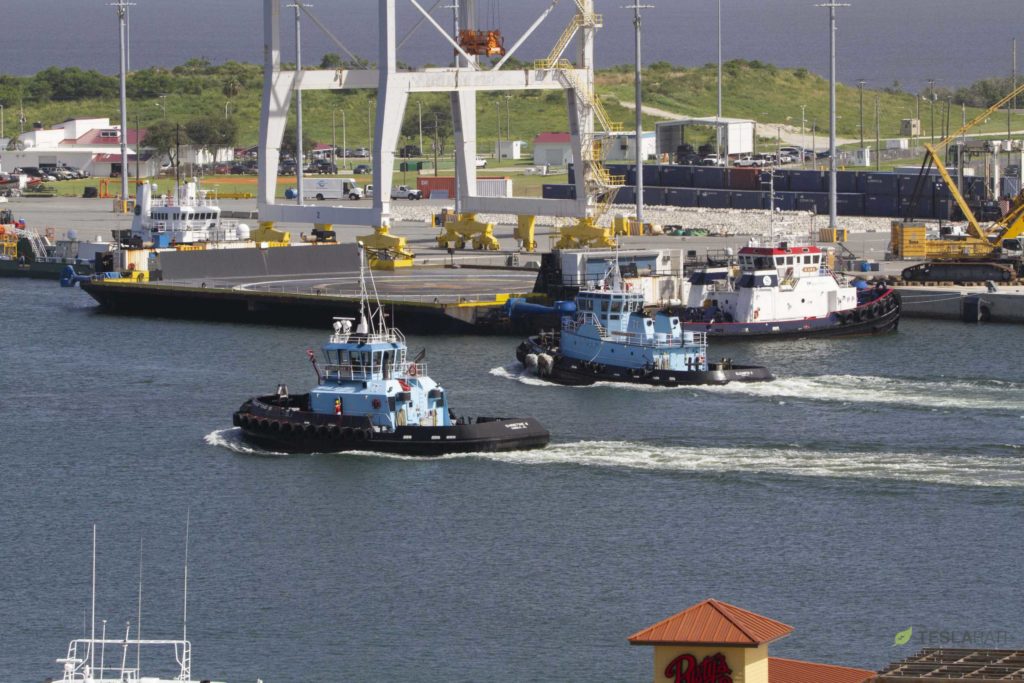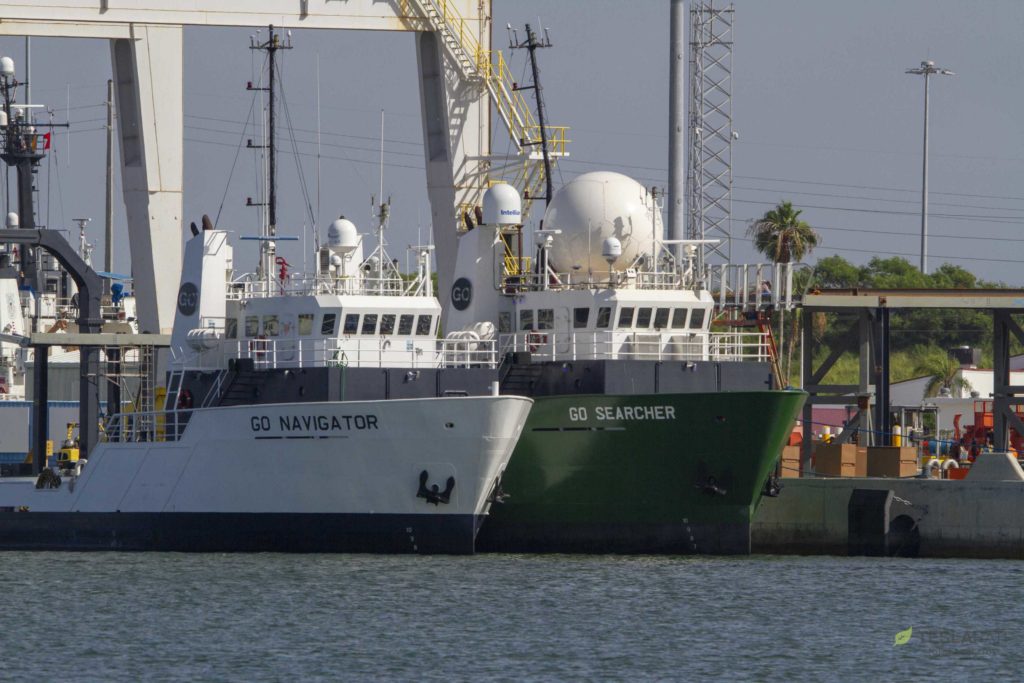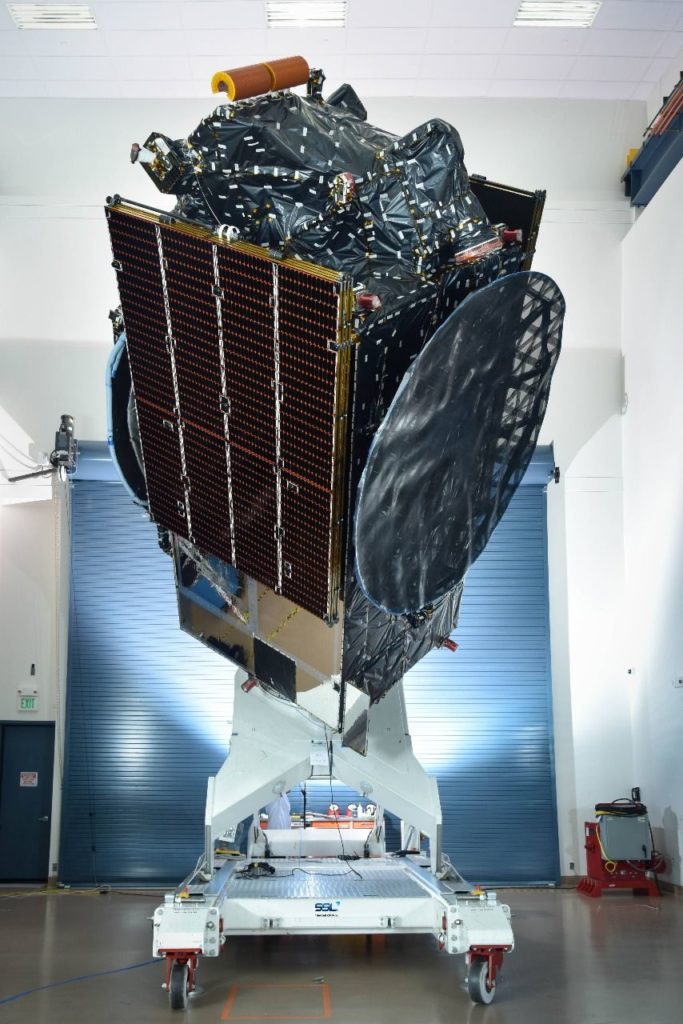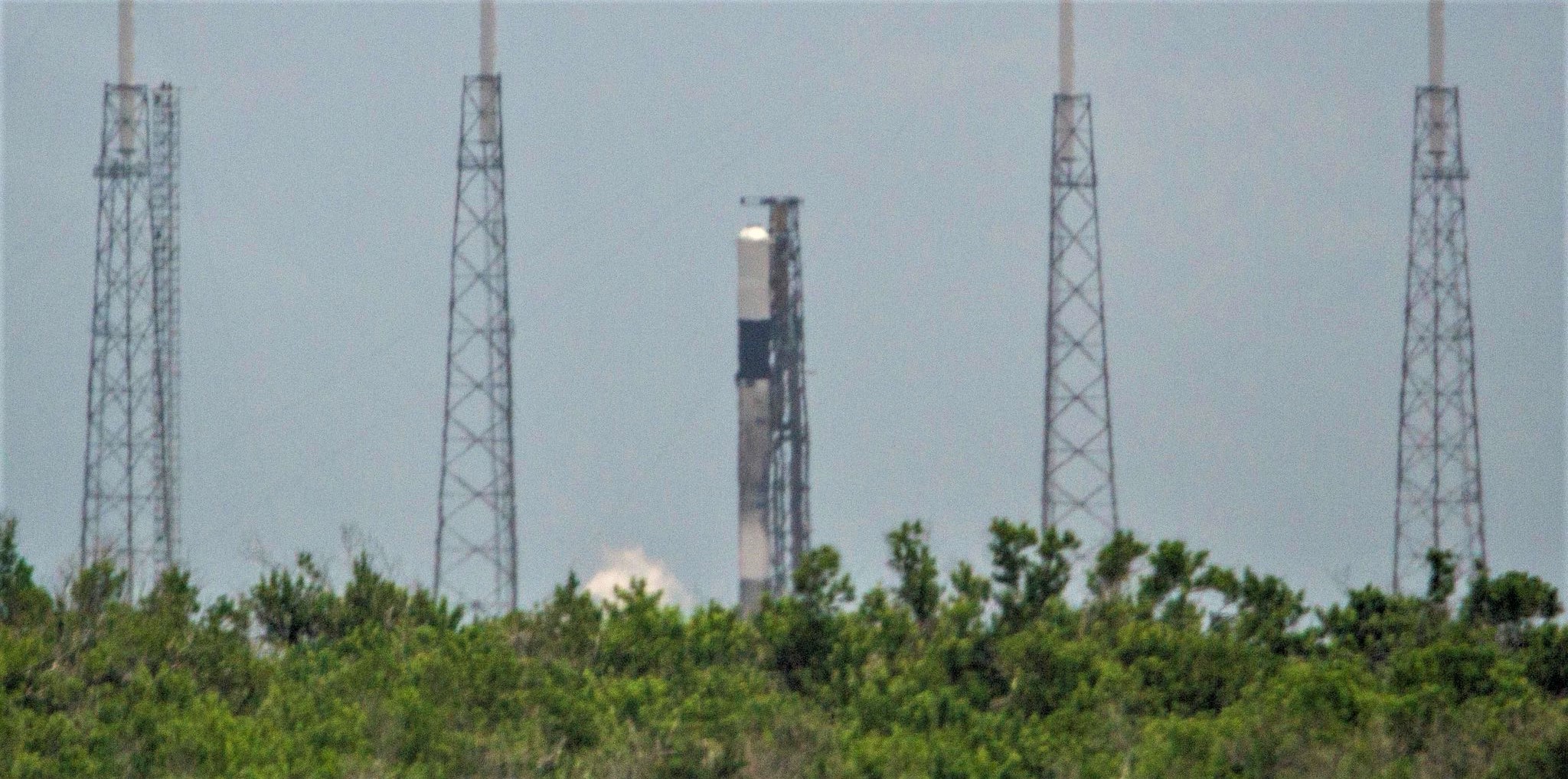
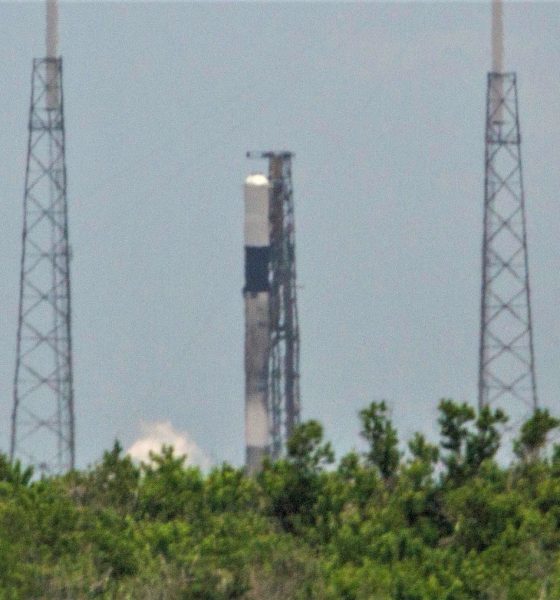
News
SpaceX spotted hot-fire testing Falcon 9 Block 5 ahead of its first reflight on August 7
Less than three months after SpaceX debuted its upgraded Falcon 9 Block 5 rocket, the company is set for an unexpectedly sudden inaugural reuse of the first highly reliable and reusable rocket to roll off of the Hawthorne, CA assembly line. Falcon 9 booster 1046 (B1046) is now targeting 1:18 AM EDT, August 7 for its second launch.
Confirmed by visual observation of a sooty Block 5 booster vertical on Cape Canaveral’s Pad 40, this reuse will be just two weeks away from beating SpaceX’s booster turnaround record of 72 days.
Static fire test of Falcon 9 complete—targeting August 7 launch of Merah Putih from Pad 40 in Florida.
— SpaceX (@SpaceX) August 2, 2018
On the ground to visually confirm plans for the historic reuse, Teslarati photographer Tom Cross also managed to capture an intriguing propellant loading and abort test, where SpaceX appeared to intentionally abort a ‘launch’ attempt after rapidly loading a full complement of liquid oxygen (LOX) and rocket-grade kerosene (RP-1).
While not 100% clear why this testing was done today, an extensive understanding of Falcon 9 Block 5’s behavior during propellant late-load and launch abort scenarios are both critical for the reliable operation of the upgraded rockets and invaluable for the first Crew Dragon launches later this year and early next, the latter with astronauts on board. With humans atop the rocket, a deep understanding of the vehicle’s behavior during a wide range of off-nominal scenarios is more critical than ever, be it required by NASA or simply a side effect of due diligence on behalf of SpaceX.
https://twitter.com/_TomCross_/status/1025074341040533504
A new era of reusable rockets
Regardless, the main focus of this mission is to launch a payload for Indonesian operator PT Telkom Indonesia, in this case a ~5800 kg (12800 lb) geostationary communications satellite known as Merah Putih (formerly Telkom 4). On the SpaceX side of things, this mission is absolutely critical for the company’s future – it will mark the (hopefully) successful inaugural reuse of a Falcon 9 Block 5 booster, the first of many dozens or even hundreds to come over the next several years if SpaceX’s can make good on its aspirations.
While not immensely impressive in the sense that B1046’s refurbishment took ~85 days to Block 4’s record 72-day turnaround, that cursory conclusion is far from accurate. The record turnaround with Block 4 booster B1045 was essentially the culmination of more than a year of experience with nearly a dozen Block 3 and Block 4 Falcon 9 reuses. While that experience definitely transferred in part to SpaceX’s first attempt at reusing Falcon 9 Block 5 (and especially so with the actual design of its reusability-focused upgrades), it’s worth noting that the first reuses of Falcon 9s averaged booster turnaround times of 180-250 days, nearly double or triple the time between Block 5’s first-ever launch and that same booster’s first reflight.
- Falcon 9 B1046 vents during a launch abort test just before its successful static fire, August 2nd. (Tom Cross)
- Drone ship OCISLY preps for its second Falcon 9 recovery in less than three weeks. (Tom Cross)
- A new vessel – GO Navigator – joined SpaceX’s fleet on July 31st, taking the place of fairing recovery stand-in GO Pursuit. (Tom Cross)
- Merah Putih (formerly Telkom 4) seen preparing for launch in Florida. (SSL)
Even still, B1046’s debut launch, landing, and refurbishment were wholly unique considering that SpaceX – according to Elon Musk – conducted an extensive “teardown” analysis of the pathfinder rocket after it was transported from the drone ship back to one of the company’s Cape Canaveral refurbishment facilities. It’s very likely the case that that teardown was one of the most extensive SpaceX has done with a recovered rocket, couched on the fact that the company’s future is wholly balanced on Falcon 9 Block 5’s success and ease/efficiency of reusability.
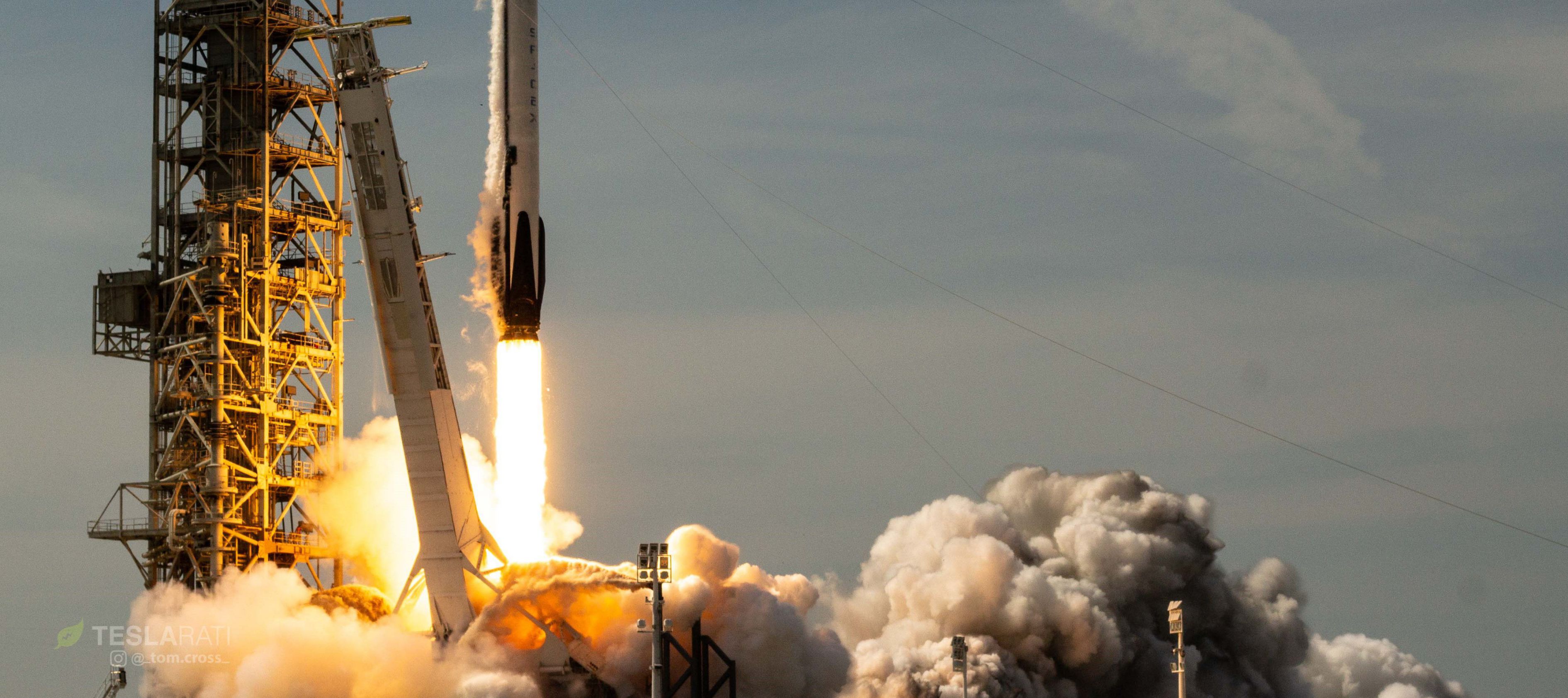
That critical teardown process likely took anywhere from 30-60 days, if not simply as long as needed to do it right, after which the rocket was fully reassembled and transported to SpaceX’s Launch Complex 40 (LC-40). Roughly eight days after it arrived at LC-40, B1046 rolled out to the pad’s launch mount, went vertical, and completed a series of tests (including static fire) on Thursday (8/2) afternoon. The static fire was confirmed by a few observers, while Tom Cross captured the first unequivocal proof that the rocket is sooty (and thus B1046).
This moment may seem small on the scale of SpaceX’s many towering achievements, but it will very likely become a fundamental keystone in the future history of affordable access to space.
prompt updates, on-the-ground perspectives, and unique glimpses of SpaceX’s rocket recovery fleet (including fairing catcher Mr Steven) check out our brand new LaunchPad and LandingZone newsletters!

Elon Musk
Tesla Model Y tops California vehicle sales despite Elon Musk backlash
Data from the California New Car Dealers Association (CNCDA) showed the Model Y outsold its nearest competitor by more than 50,000 units.
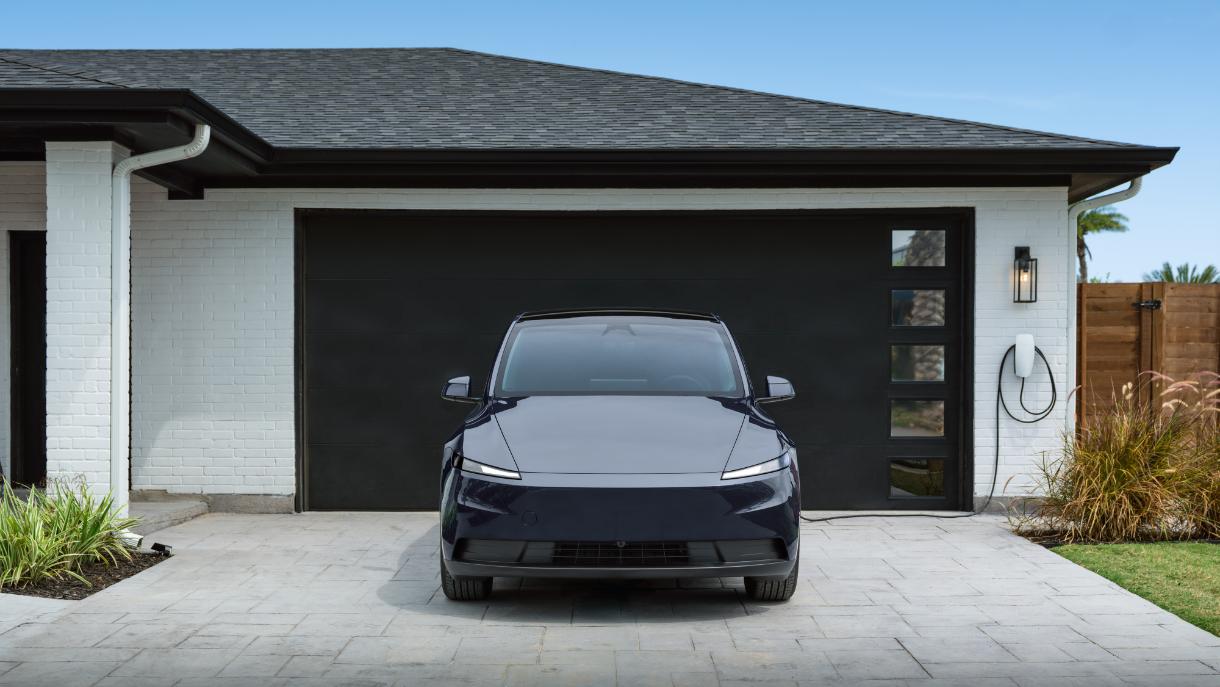
The Tesla Model Y was California’s best-selling new vehicle in 2025 for the fourth straight year, despite protests against CEO Elon Musk and a changeover to the Model Y’s updated variant that caused a pause in production and deliveries early in the year.
Data from the California New Car Dealers Association (CNCDA) showed the Model Y outsold its nearest competitor by more than 50,000 units, according to KRON4.
The Model Y recorded 110,120 registrations in California in 2025. The second-best-selling vehicle, the Toyota RAV4, posted 65,604 units, followed by the Toyota Camry at 62,324. The Tesla Model 3 ranked fourth with 53,989 sales, ahead of the Honda Civic at 53,085 units.
Despite leading the state, Model Y sales have trended downward year-over-year. Registrations fell from 132,636 in 2023 to 128,923 in 2024, and then to 110,120 in 2025. Overall Tesla sales in California also declined, dropping from 238,589 in 2023 to 202,865 in 2024 and 179,656 in 2025.
The slowdown comes as the federal $7,500 EV tax credit ended, removing a key incentive that had supported electric vehicle demand for years.
“Tesla has a few advantages. Tesla, as a brand, has a status, cache, so I think folks in certain parts of the Bay. Owning a Tesla is a thing. I think that’s breaking down over time, especially given the political controversies surrounding Mr. Musk,” CNCDA President Brian Maas said.
California saw multiple anti-Musk protests in 2025, along with notable reports of consumer-owned Teslas being vandalized and attacked by protesters and activists. The fact that the Model Y and Model 3 remained strong performers in California is then a testament to the quality and value of the two vehicles.
Tesla’s sales of the Model Y and Model 3 might see an increase this year, as the company has announced that it is sunsetting its two more expensive cars, the Model S and Model X. With the Model S and Model X retired, more consumers will likely go for the Model Y and Model 3.
“Maybe the Model S has outlived its usefulness in terms of attracting customers. It’s no surprise the ones they kept are the Model Y and Model 3,” Maas noted.
News
Tesla Supercharger left offline as Swedish court backs union strike
The completed Supercharger has been stalled for nearly two years amid Tesla’s conflict with the IF Metall union in Sweden.
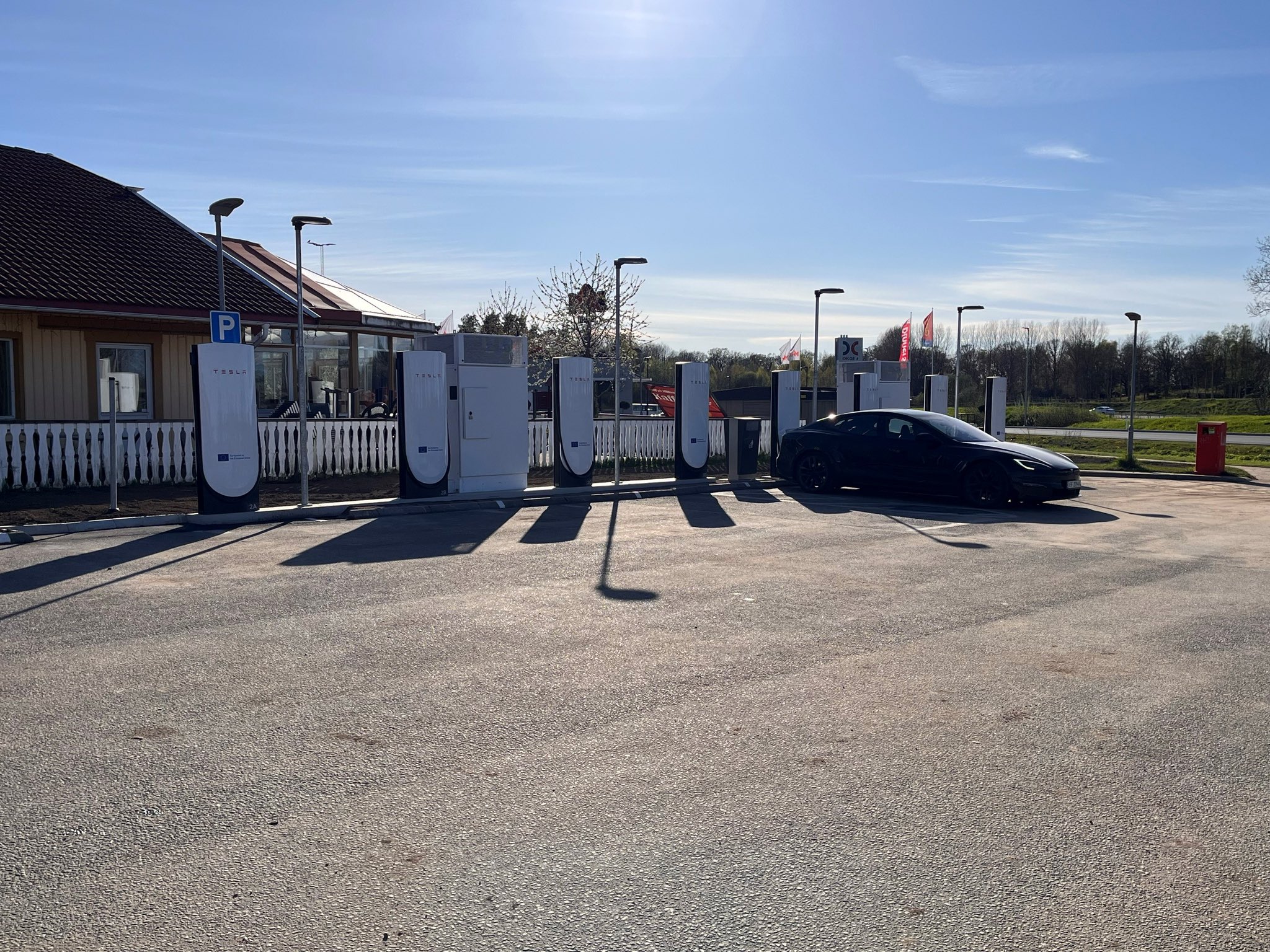
Tesla’s Supercharger station in Ljungby, Sweden will remain without power after a Swedish administrative court rejected the company’s appeal to force a grid connection to the site. The completed Supercharger has been stalled for nearly two years amid Tesla’s conflict with the IF Metall union in Sweden.
The court ruled that the ongoing union strike against Tesla Sweden is valid grounds for the Supercharger’s connection delay, as noted in an Allt Om Elbil report.
The Ljungby Supercharger was one of the first charging stations that were denied grid access after IF Metall launched its strike against Tesla Sweden in late 2023. Electricians at local grid operator Ljungby Energinät were pulled into a sympathy strike by the Seko union, preventing the site’s connection.
Tesla reported both Ljungby Energinät and Gävle Energi Elnät AB to the Swedish Energy Market Inspectorate, arguing that grid operators failed to meet their legal obligation to provide connection to the location within a reasonable time frame.
The regulator ruled that the strike represented a valid exception under Swedish law, however, citing constitutional protections for industrial actions.
Tesla responded by appealing to the Administrative Court in Linköping, claiming it had the right to connection within a reasonable period, generally no more than two years. Tesla Sweden also argued that the country’s Electricity Act conflicts with EU law. The court rejected those arguments.
“The Administrative Court today finds that granting the company’s request in practice applies to the same thing as the blockade and that it would mean that the blockade would be ineffective.
“Such a decision would contradict the principle that labor market conflicts should be resolved to the greatest extent possible by the labor market parties, not by the state. The industrial action is also constitutionally protected,” Chief Councilor Ronny Idstrand stated.
The court also concluded that the Electricity Act does not conflict with EU regulations and that special reasons justified the extended delay.
While the ruling was unanimous, Tesla Sweden may appeal the decision to a higher administrative court.
News
Tesla China exports 50,644 vehicles in January, up sharply YoY
The figure also places Tesla China second among new energy vehicle exporters for the month, behind BYD.
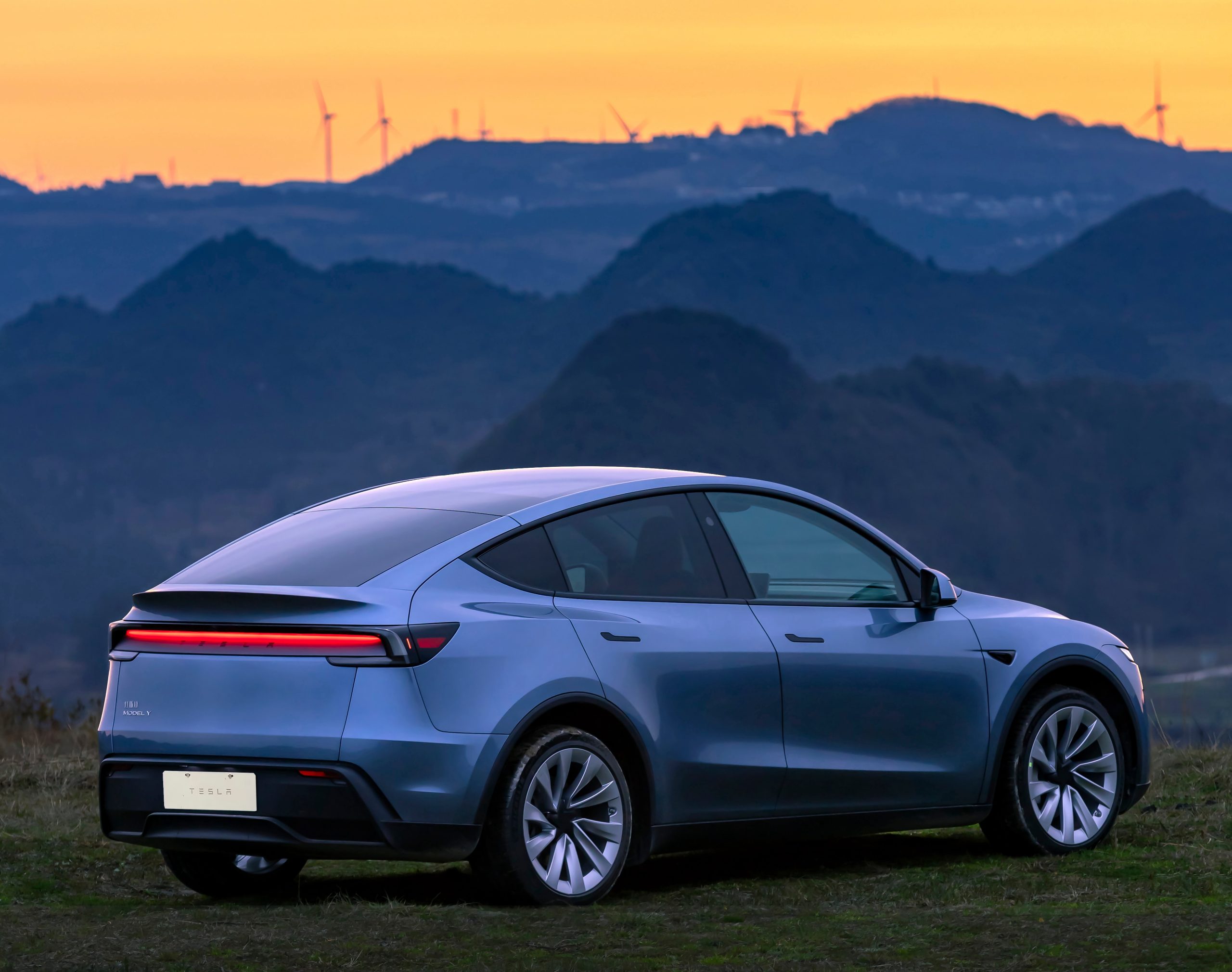
Tesla China exported 50,644 vehicles in January, as per data released by the China Passenger Car Association (CPCA).
This marks a notable increase both year-on-year and month-on-month for the American EV maker’s Giga Shanghai-built Model 3 and Model Y. The figure also places Tesla China second among new energy vehicle exporters for the month, behind BYD.
The CPCA’s national passenger car market analysis report indicated that total New Energy Vehicle exports reached 286,000 units in January, up 103.6% from a year earlier. Battery electric vehicles accounted for 65% of those exports.
Within that total, Tesla China shipped 50,644 vehicles overseas. By comparison, exports of Giga Shanghai-built Model 3 and Model Y units totaled 29,535 units in January last year and just 3,328 units in December.
This suggests that Tesla China’s January 2026 exports were roughly 1.7 times higher than the same month a year ago and more than 15 times higher than December’s level, as noted in a TechWeb report.
BYD still led the January 2026 export rankings with 96,859 new energy passenger vehicles shipped overseas, though it should be noted that the automaker operates at least nine major production facilities in China, far outnumering Tesla. Overall, BYD’s factories in China have a domestic production capacity for up to 5.82 million units annually as of 2024.
Tesla China followed in second place, ahead of Geely, Chery, Leapmotor, SAIC Motor, and SAIC-GM-Wuling, each of which exported significant volumes during the month. Overall, new energy vehicles accounted for nearly half of China’s total passenger vehicle exports in January, hinting at strong overseas demand for electric cars produced in the country.
China remains one of Tesla China’s most important markets. Despite mostly competing with just two vehicles, both of which are premium priced, Tesla China is still proving quite competitive in the domestic electric vehicle market.
